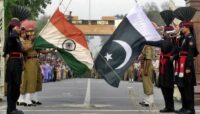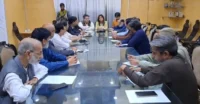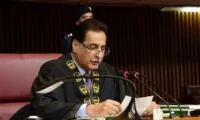The recent upsurge in Israeli brutalities against Palestinians cannot be justified in any manner whatsoever. Blatant use of military hard power on innocent women and children, transgression and attacks on worshippers, that too during ongoing prayers, and celebrating the arson attack on Al Aqsa mosque are depictions of a modern-day Holocaust.
Nonetheless, this decades-old tale of violence and hegemony has been re-engineered with the advent of technology. Today, the Israeli apartheid against Palestine is not confined to Gaza locally and 9 pm news internationally, instead, it resonates every second across the globe on social media platforms, news webpages, blogs, and video feeds. People show their partisan support and allegiance to the cause through tweets and online statuses. Even the news of a missile launch in Gaza becomes available the very second it detonates. Thus, the role of social media in the Israeli hegemony cannot be ignored.
The first question to address is that how has social media reinvigorated the Palestinian struggle? Instant sharing and hashtagging have connected every Muslim to Gaza. Tweets and hashtags clipped to videos and pictures of Israeli brutalities take everyone to the battlefield and inculcate empathy and tilt sentiment towards the Palestinians. Furthermore, the raw images and videos received directly from Palestine where even women and children are not spared add new energy among Muslim youth. Owing to these disturbing and distressing images, the Muslim youth becomes more hardline. A sense of belonging and unanimous agreement on Muslims being marginalized dominates the Muslim world.
Apart from this, demagogues and populist leaders exploit these trends of public perception to further their political clout. Many a time, populist leaders take the centre stage to gather support and oppose the acts of atrocities against Muslims. However, digging further, none of the actions they take have any meaningful impact on the real cause. An example is a recent speech by President Tayyip Erdogan of Turkey where he calls on all the Muslim Ummah to stand and fight for Al Aqsa before it is too late. Amid gaining public support and manipulating public sentiment, Mr. Erdogan has remained obscurant in revealing that diplomatic relations between Israel and Turkey have received no hiccups.
On top of this, incidents like Israeli aggression and hegemony, coupled with social media, end up polarizing people and communities across the globe. Netizens from two poles where even celebrities are not barred from staying neutral. Loyalties to Islam and Muslims become linked to the intensity of the response and bellicosity against Israel. The youngest Nobel Laureate Malala Yousaf Zai was also not spared when she used the word ‘violence’ in her tweet instead of ‘genocide’.
As mentioned above, social media has the power to alter perceptions and manipulate sentiments. It also has the potential of distracting people from a real and meaningful solution to the Palestine cause. They are kept occupied with promoting respective hashtags and engaging in online bickering. So, the next question comes to mind, how can social media distract from an effective response and meaningful resolution of the Palestine issue?
Firstly, it should be understood and established that online platforms are not a true depiction of public opinion. The use of bots and paid trends dominate the web. Hybrid warfare uses weapons of perception management to exploit fault lines of adversaries. In the Israel and Palestine crisis, Pakistani Twitter users promoted the Palestinian cause, and hashtags like #PalestineLivesMatter became the top trend. In India, it was the opposite. Trends like #IndiaStandsWithIsrael began to surface on newsfeeds of Indian netizens. Despite apparent relevance, there is little veracity in these trends. They are just meant to widen the chasm between different countries and a new method of keeping adversaries divided.
Secondly, online debates and discussions never reach any meaningful conclusion, rather they create a sense of value addition which in reality has no impact. Thousands of tweets add weight to different hashtags, making them the top trends. People show their unequivocal and unanimous support to a cause but no one realizes that the government and political elites pay lip service to these trends. Gone are the days when social media trends reverberated power corridors and exhorted leadership to take action. Today, leaders wait until a new trend emerges and diverts people’s attention towards something new.
Lastly, the online arena creates a rift among people over their opinions; hard lining and reinforcing their stance through echo chambers. This inculcates intolerance and promotes one-sided opinion formation. Algorithms select pages and communities based on user interest, concentrating information and creating enclosed chambers. These pages and communities present a one-sided view to the user, which is reinforced as his information segment becomes restricted and confined. Palestine supporters lash out at Israel’s blatant use of power and human rights violations, Israeli partisans oppose Hamas and justify violence in lieu of self-defense. Thus, social media makes no difference except for further polarizing adversaries and desisting any chances of resolution.
In conclusion, the recent spat between Palestine and Israel is different from preceding intifadas. This time, social media is of utmost importance. Any news sprouting from Gaza becomes a notification on billions of devices across the globe within a few seconds. With such instant access to information on a huge scale, there are various implications. Social media creates echo chambers where opinions are reinforced and space for meaningful discussion becomes restricted. Moreover, it paves way for populist leaders who exploit public sentiment for political gains. Apart from this, adversaries use these online trends to create unrest and instigate unnecessary disputes. Thus, it should be understood that today’s online trends are not tantamount to their decade-old impact. Policymakers and power holders turn a deaf ear to these lists. A resolution of the Palestine issue into a two-state solution is only possible if energies are channeled and streamlined, rather than transformed into tweets and trends.
Stay tuned to Baaghi TV for more. Download our app for the latest news, updates & interesting content!






